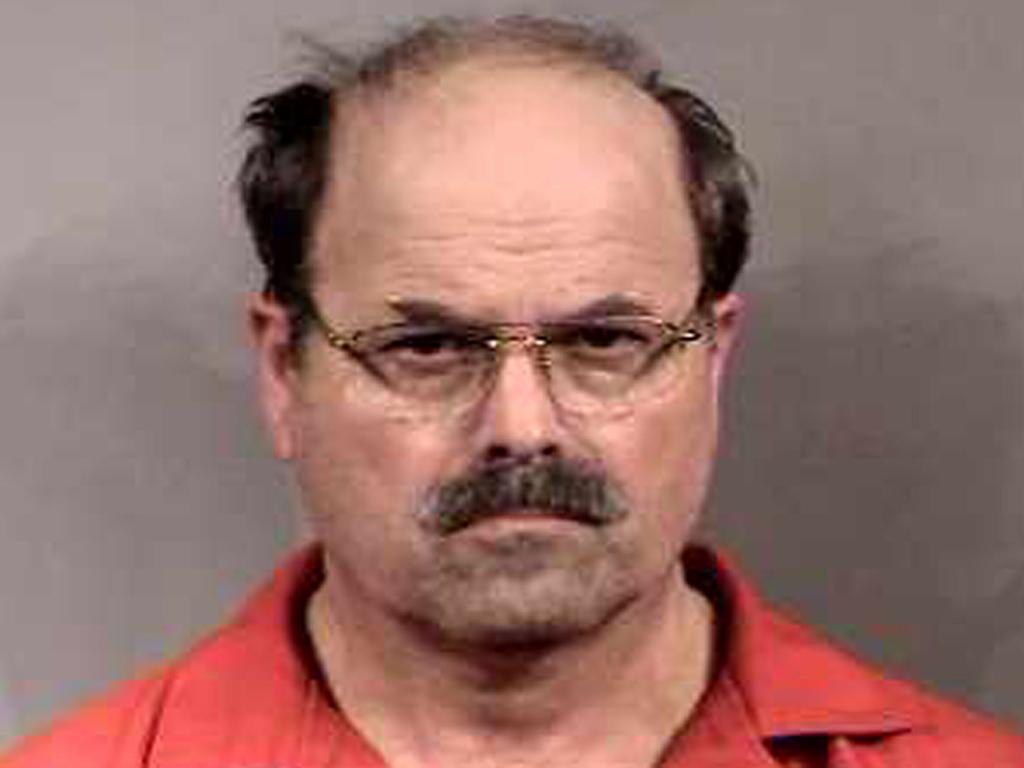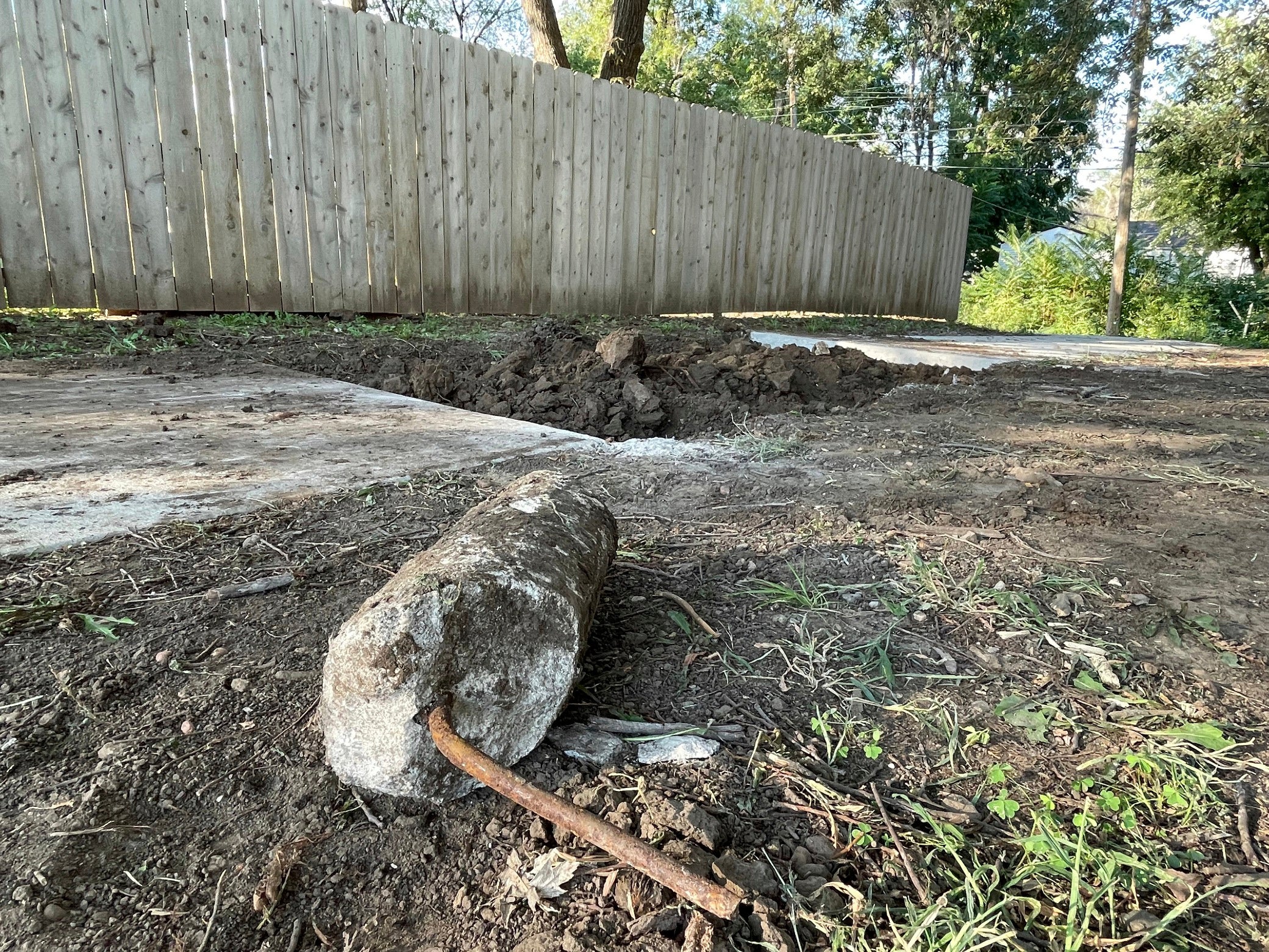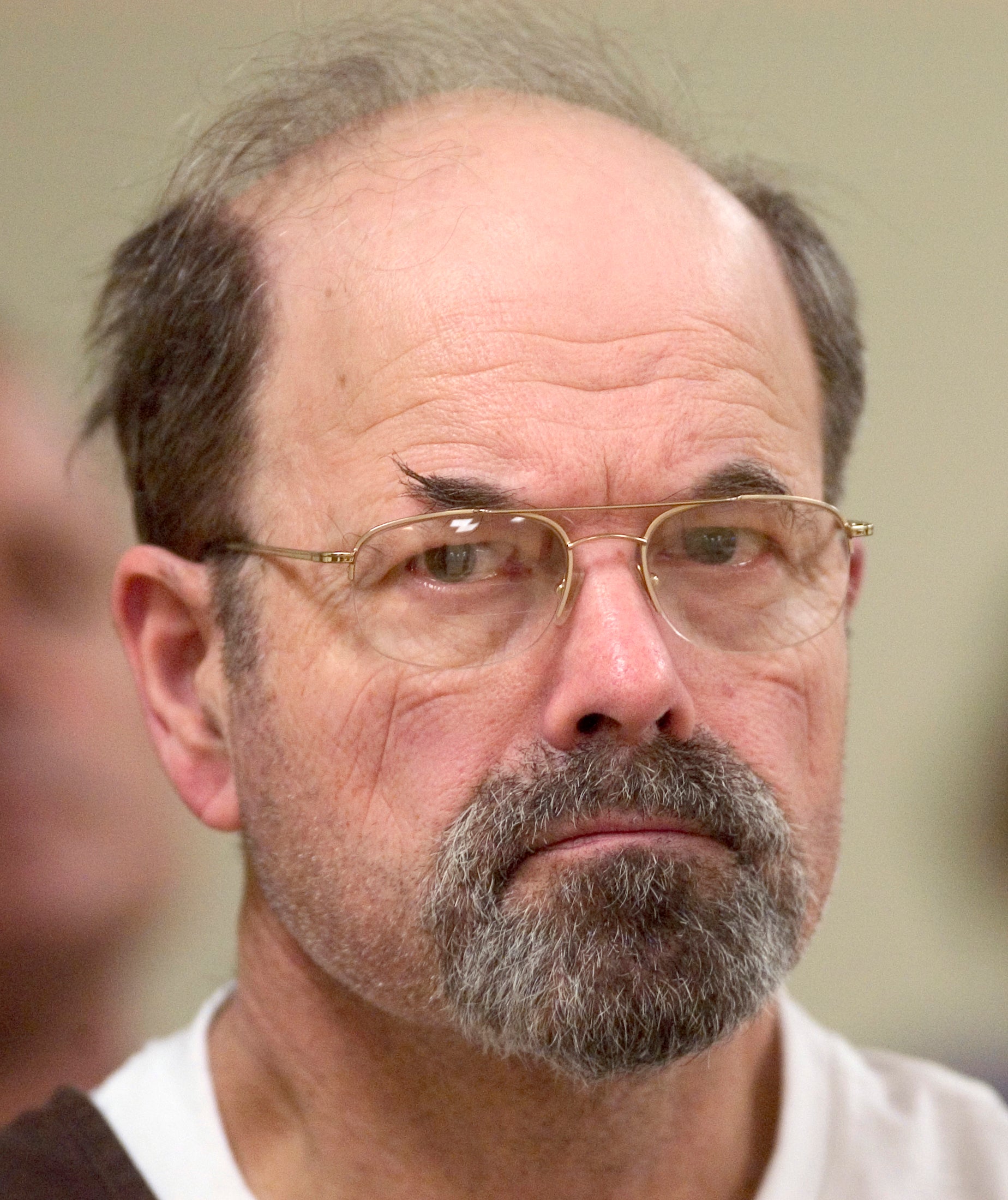The BTK killer’s need for notoriety led to his capture a decade ago. He’s now a ‘prime suspect’ in at least two other murders
Authorities in Oklahoma dug up ‘trophies’ from BTK killer Dennis Rader’s former home. They believe the discoveries will finally prove the prolific serial killer had even more victims, Bevan Hurley writes


Over a two decade reign of terror, Dennis Rader stalked, raped and murdered his victims before boasting of his kills in encrypted messages to police and media.
Rader’s need for notoriety eventually led to his arrest and conviction for 10 murders in the Wichita area when investigators traced a floppy disk he had sent to a Kansas TV station to a computer at his church in 2005.
Nearly a decade on from his incarceration, Rader’s twisted appetite for hoarding “trophies” from his victims has led authorities to name him as a “prime suspect” in several unsolved murders and missing persons cases across at least two states.
The Osage County Sheriff’s Department found several items of interest during a search of Rader’s former home in Park City this week, including “pantyhose ligature” authorities believe were used to strangle one of his victims.
The prolific serial killer — known as the BTK killer — is now firmly in investigators’ sights for the unsolved abduction of Cythia “Cyndi” Dawn Kinney in 1976 and the 1990 murder of Shawna Garber in Missouri.
Rader, now 78, has refused to cooperate with authorities in return for amnesty. He is serving 10 consecutive life terms at the El Dorado Correctional Facility maximum security prison in Kansas.
The bombshell development has placed one of America’s most notorious killers back in the spotlight that he clearly craves.
‘Prime suspect’
On Tuesday 22 August, deputies from Oklahoma’s Osage County Sheriff’s Office dug up Rader’s former home in Park City, a suburb of Wichita, where he lived throughout his murderous spree.
“Through the investigation, we developed information of some possible trophies of Dennis Rader’s, and we followed up on those leads and worked with Park City,” Sheriff Eddie Virden told Fox News Digital.
“One of the items we recovered at that time was what appears to be a pantyhose ligature,” he added. The items were turned over to investigators from the Kansas Bureau of Investigation for further analysis.
The next day, Osage County undersheriff Gary Upton released a statement naming Rader as the prime suspect in at least two unsolved murders, including the disappearance of Cynthia Kinney, which is still officially designated as a missing person case.
The 16-year-old cheerleader was last seen leaving a laundromat in Pawhuska, Oklahoma, in 1976, when she got into a 1965 faded beige Plymouth with two women, according to the National Missing and Unidentified Persons System.
Sheriff Virden told KAKE-TV that Rader may have been installing alarms in a bank across the street from the laundromat where Kinney was last seen. Rader worked as a regional installer for ADT at the time, and was also involved with Boy Scouts in the area.

Sheriff Virden said he launched an investigation after learning that Rader had written “bad laundry day” in his journals.
“He would go to a laundromat in Wichita and watch victims and young women,” the sheriff said.
“She was taken mid-morning in the week,” the sheriff told KSN. “A lot of his crimes occurred between eight and noon in the week when he worked for ADT.”
He interviewed the notorious killer earlier this year, and Rader denied any involvement in the abduction.
In a statement this week, the Osage County Sheriff’s office said Kinney’s missing person case was “the primary focus of the search”.
“At this stage, Dennis Rader is considered a prime suspect in these unsolved cases, including the Cynthia Dawn Kinney case from Pawhuska.”

Rader is also suspected of the rape and murder of Shawna Beth Garber, 22, whose body was discovered behind an abandoned farmhouse in McDonald County, Missouri in 1990. For more than three decades, she was known only as Grace Doe, before her remains were identified in 2021.
McDonald County Sheriff Rob Evenson told KSNF-TV that Rader had previously denied any involvement in Garber’s death. Prior to this week’s discoveries, they had found no direct evidence linking Rader to the case, he said.
The Wichita Eagle reported that Rader’s former Park City home was now an empty field. Several concrete blocks were moved to allow investigators to dig in the area.
Killer’s daughter helps authorities
Rader’s daughter Kerri Rawson said in a statement posted to X this week that she began assisting law enforcement with Kinney’s disappearance and several other unsolved murders.
The true crime author contacted law enforcement in Missouri after learning the unsolved cases had been linked to her father and offered to volunteer in both cases.
As part of that work, she applied to lift a “do not contact order” banning all contact with her father and visited him twice at the El Dorado Correctional Facility.

Ms Rawson said on Wednesday that authorities were investigating violent crimes he may have committed between the early 1960s and his arrest in 2005.
In an interview with NewsNation, Ms Rawson said Rader was “seething” at being linked to the murder cases.
“He’s very unhappy with what’s going on,” Ms Rawson said.
She added that her father had refused an immunity deal to admit guilt in the unsolved cases, and was effectively “rotting” in prison.
“He’s lost like seven inches, and he’s in a wheelchair,” she told host Ashleigh Banfield. “It was the first time he ever dropped his mask and became BTK in front of me.”
Who is the BTK killer?
Rader, born in Kansas in 1945, harboured sadistic fantasies about torturing and killing women from a young age.
His killing spree began in January 1974, when he committed his first known murders of Joseph Otero, 38, Julie Otero, 33, and two of their five children, Joseph Otero Jr. and Josephine Otero, who were 9 and 11 years old, respectively.
Just months later, in April 1974, Rader killed 21-year-old Kathryn Bright, in the same way he did the Otero family, binding her, strangling her, and then killing her.
At his trial years later, he would describe how he stalked his victims before deciding to kill him. The plans of murder were referred to as “projects.” And if one didn’t work out, he’d move on to the next one.
“If you’ve read much about serial killers, they go through what they call different phases,” he said during his trial. “In the trolling stage, basically, you’re looking for a victim at that time. You can be trolling for months or years, but once you lock in on a certain person, you become a stalker.”
In 1977, BTK killed two more women, Shirley Vian and Nancy Fox, and claimed responsibility for the crimes in a letter sent to Wichita television station KAKE.
In a separate letter sent to the media, Rader demanded attention and suggested possible names he should be known by, including BTK.
He toyed with investigators for years by sending cryptic messages to police and media boasting of his kills.
He committed further murders in 1985 and in 1988, when he killed Marine Hedge and Vicki Wegerle. His 10th murder was Dolores E. Davis in January 1991.
In 1988, Rader sent a letter to the Fager family in Wichita after several of their family members had been murdered. He denied committing the crime, but credited the killer with having done “admirable work”. The suspect in that case remained to be William Buttersworth.
Outwardly, he had lived a normal life as the respected president of Christ Lutheran Church in Wichita and a Cub Scout leader.
Rader married Paula Dietz in 1971, and the couple had two children Brian Rader, born in 1973, and Kerri Rawson, born in 1978.
In 2005, Rader was finally caught after a floppy disk he had sent to a Kansas TV station was traced to a computer at his church.
He confessed to 10 murders and was sentenced to life imprisonment without the possibility of parole for 175 years.

Rader cooperated with renowned serial killer expert Dr Katherine Ramsland for her 2016 book Confession of a Serial Killer: The Untold Story of Dennis Rader, the BTK Killer.
The book documented in explicit detail Rader’s 10 murders through crime scene reports, jailhouse visits, telephone calls, and written correspondence, and drew on hundreds of hours of interviews with the serial killer.
Rader discussed intimate family details in the book, including how he would return from a kill to dine with his oblivious family members.
Ms Rawson told The Independent in an interview earlier this year that the book had retraumatised her.
“To see my father say things about my family, and be really rough on us in places it basically tore me apart,” she said.
Rader has been linked to suspected killer Bryan Kohberger, who is awaiting trial for the murders of four college students in Moscow, Idaho.
Mr Kohberger gained a Master’s degree in criminology in 2022 from Pennsylvania’s DeSales University, where he was taught by Dr Ramsland.
Ms Rawson said she believed it was possible that Mr Kohberger was in contact, and possibly influenced, by her father.
She added that “fans” had sent underpants, glasses and disturbing artwork with BTK symbols to her father in prison.
Ms Rawson cut off all contact with her father in 2021 after being harassed by his supporters in email and social media, before renewing ties in an effort to solve several cases.
She published A Serial Killer’s Daughter, which became a New York Times bestseller, in November.
Rader’s crimes have been featured frequently in popular culture. Stephen King based his novella A Good Marriage on Rader. A character from Thomas Harris’s 1981 novel Red Dragon was also inspired by the notorious killer.


